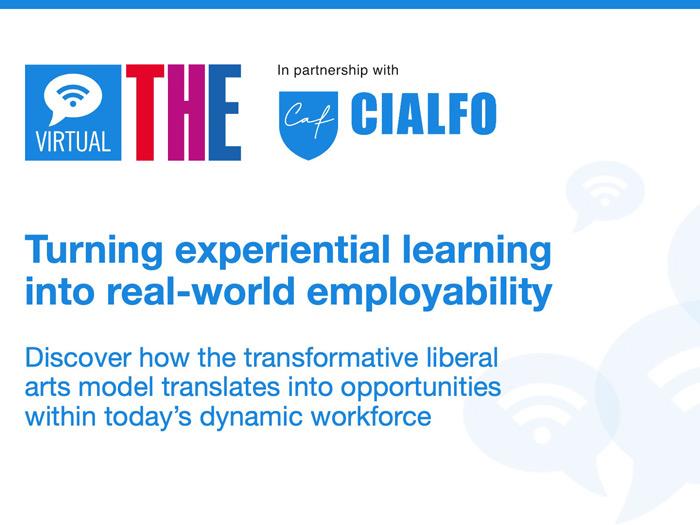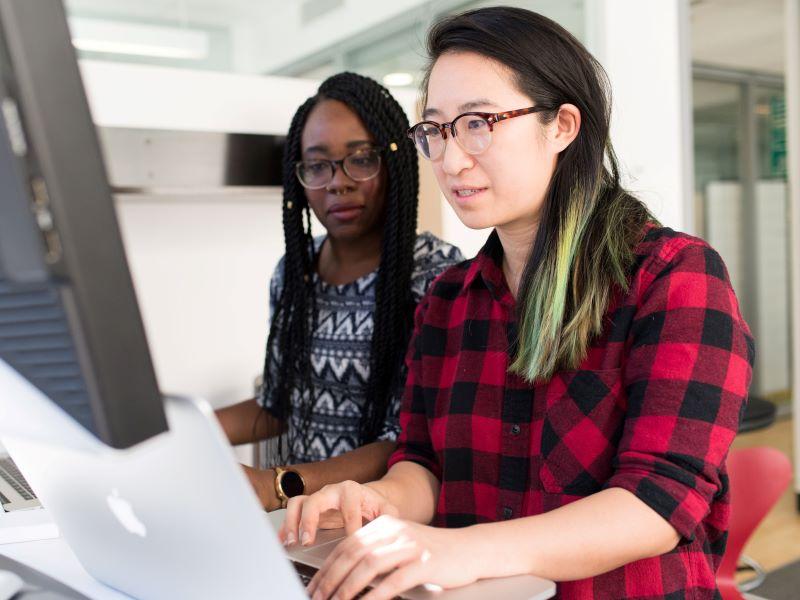For much of the modern era, global liberal arts education has been shaped by higher education institutions of the United States – the gold standard for cultivating critical thinking, civic responsibility and global awareness.
But as American universities currently wrestle with culture wars, funding cuts and political polarisation, a quiet but powerful shift is taking place. The next chapter in liberal arts education may not be written in Cambridge or Berkeley, but in the university towns of Morocco, India and the Middle East.
- How a liberal arts college can embrace AI tools
- Diversity isn’t a one-off task, it’s a learning journey
- For an agile future workforce, embed a liberal arts education system
To do so, we can’t simply borrow from Western liberal arts models. We have to actively reimagine them by contextualising the values of holistic learning, civic engagement and intercultural competence for our own students and societies.
Let’s ask the question: is the Global South now better positioned to lead liberal arts education into the future?
Crisis of confidence in an outdated model
In the US, the liberal arts tradition is facing unprecedented challenges. Humanities programmes are being defunded.
Diversity, equity and inclusion initiatives are under political fire. International students face increasing barriers, from visa delays through to rising xenophobia, and the climate that once made America a beacon for global education is shifting.
At its core, liberal arts education is about freeing the mind: cultivating curiosity, ethical reasoning and the ability to engage with complexity.
But how can institutions uphold those values in a context of restriction and retreat? The dissonance is growing. As the traditional centres falter, universities like ours are stepping in, not with mimicry, but with innovation.
The Moroccan model: rooted, responsive and radical
Our approach to liberal arts is anchored around five core pillars: well-being, civic engagement, experiential learning, global competence and cultural intelligence.
Rather than being abstract ideals, these are embedded into our curriculum, student life and institutional identity. This integrated model is helping us shape graduates who are employable, adaptable, self-aware, culturally agile and globally minded.
This is how we’ve done it, and why it matters:
1. Making well-being a foundational principle
In an era marked by student burnout and mental health crises, well-being cannot remain confined to counselling offices. Instead, place it at the heart of pedagogy.
We’ve piloted the Harvard Flourishing Index – a research-based framework to assess how students thrive across domains including health, purpose and relationships. Our goal is to educate whole people, not just high performers.
This process includes expanding mental health resources, introducing character education and weaving emotional intelligence into the classroom. If students do not feel seen, safe or supported, how can they succeed?
2. Moving from prescribed paths to purposeful exploration
Rigid academic structures often push students to choose majors before they fully understand their interests or strengths. To avoid this, we delay specialisation and encourage cross-disciplinary exploration in the early years.
Our General Education programme spans the arts, sciences and humanities, allowing students to build broad skills – critical thinking, ethical reasoning, scientific literacy, all before committing to a particular field. They are not boxed into tracks. They are encouraged to find their voice and shape their own academic journey.
This flexibility does more than increase satisfaction. It fosters autonomy, maturity and a stronger alignment between studies and aspirations.
3. Service learning, not just community service hours
Civic engagement is more than a box to tick. It’s a mindset to cultivate.
Rather than treating volunteering as an extracurricular option, integrate service learning into academic programmes. So a marketing class may develop a campaign for a rural cooperative. Computer science students might design software for a local NGO. These experiences develop both skills and social conscience, encouraging students to connect knowledge with impact.
Students don’t just give back, they grow forward.
As the first non-US NECHE-accredited university in Africa, we’ve taken a leading role by actively participating in the National Survey of Student Engagement (NSSE) – a rigorous and widely respected US instrument that measures the depth of undergraduate student involvement across curricular, co-curricular and extracurricular domains.
This initiative has provided us with a robust, evidence-based understanding of how our students engage with their learning environment.
In parallel, we have also engaged with the Faculty Survey of Student Engagement (FSSE), a complementary global study, developed by Indiana University. The FSSE captures faculty perspectives on student engagement and their expectations for participation in educational practices, which are directly linked to high levels of learning and development.
Drawing on insights from both NSSE and FSSE allows us to develop a well-rounded understanding of the student experience, from the perspectives of both learners and educators. This dual approach allows us to benchmark our performance against peer institutions worldwide, identify areas of strength and pinpoint opportunities for growth.
The data collected acts as a catalyst for meaningful, evidence-informed conversations about teaching, learning and the overall quality of our educational offerings, empowering us to make strategic improvements that enhance student engagement and success.
4. Cultural intelligence – the new global literacy
In an increasingly fractured world, intercultural competence is no longer optional; it’s essential.
Our student body reflects a rich mosaic, from North and sub-Saharan Africa through to Europe, Asia and the Middle East, allowing us to live and teach global competence daily.
Our curriculum includes comparative religion, world literature, multilingual communication and philosophy across cultures.
This enables students to collaborate across differences, manage ambiguity and respond to diverse worldviews with empathy. This is cultural intelligence at work, and it may be the most critical 21st-century skill we can teach.
5. Experiential learning rooted in local contexts
All too often, experiential learning means internships in global corporations.
But it also means engaging with local challenges, developing solutions grounded in African and Moroccan realities.
Students run start-ups, join policy simulations and contribute to research on climate, public health and education.
Our capstone projects, labs and case competitions often address issues close to home. The goal is not to transplant Western models, but to generate local innovation with global relevance.
We ask not just how to solve problems, but whose problems we are solving, and to what end.
Systems to support the vision
Every university brochure today seems to promise a “student-centred” education. But turning aspirations into action requires intentional structures. We’ve built the following:
- A First-Year Experience programme that orients students to interdisciplinary study and personal growth.
- A full support ecosystem, including the Centre for Learning Excellence, peer mentoring and academic coaching.
- A data-driven Institutional Research Office that monitors student success, well-being and engagement, not for compliance, but for improvement.
- Membership in the Coalition for Transformational Education (now the Learning Well Coalition), which further aligns us with global innovators in character education and flourishing.
These are all part of a coherent educational philosophy that prepares graduates to think critically, act ethically and lead effectively.
Is America losing the liberal arts edge?
So, is the US still the best place to study liberal arts? For decades, its universities have led the way, fostering freedom of thought, interdisciplinary learning and civic engagement.
But as this legacy has come under strain, countries like Morocco are stepping up – not just to preserve liberal arts ideals, but to reinvigorate them.
Our American-style liberal arts education is globally accredited (by NECHE), but remains rooted in local context. Our students can transfer to US graduate programmes, but many are choosing to stay and build impact at home.
For global students looking for meaningful, future-ready education, America is no longer the only game in town.
The Global South as a new epicentre
The liberal arts need a reboot. But that won’t come from nostalgia for Ivy League tradition. It will come from innovation, humility and cultural adaptation.
In the Global South – Morocco, Ghana, India and beyond – universities are building new models of liberal arts education which are interdisciplinary, emotionally intelligent, socially engaged and internationally credible.
If the liberal arts are to thrive, they must evolve. And perhaps the future will be shaped not just by those who invented the model, but by those who dared to redefine it.
Abderrahim Agnaou is an associate professor of communications and rhetoric at Al Akhawayn University in Ifrane, Morocco, and serves as chair of its General Education Committee. A member of the Learning Well Coalition, he advocates for student-centred, values-driven learning models in the Global South.
If you would like advice and insight from academics and university staff delivered direct to your inbox each week, sign up for the Campus newsletter.




comment